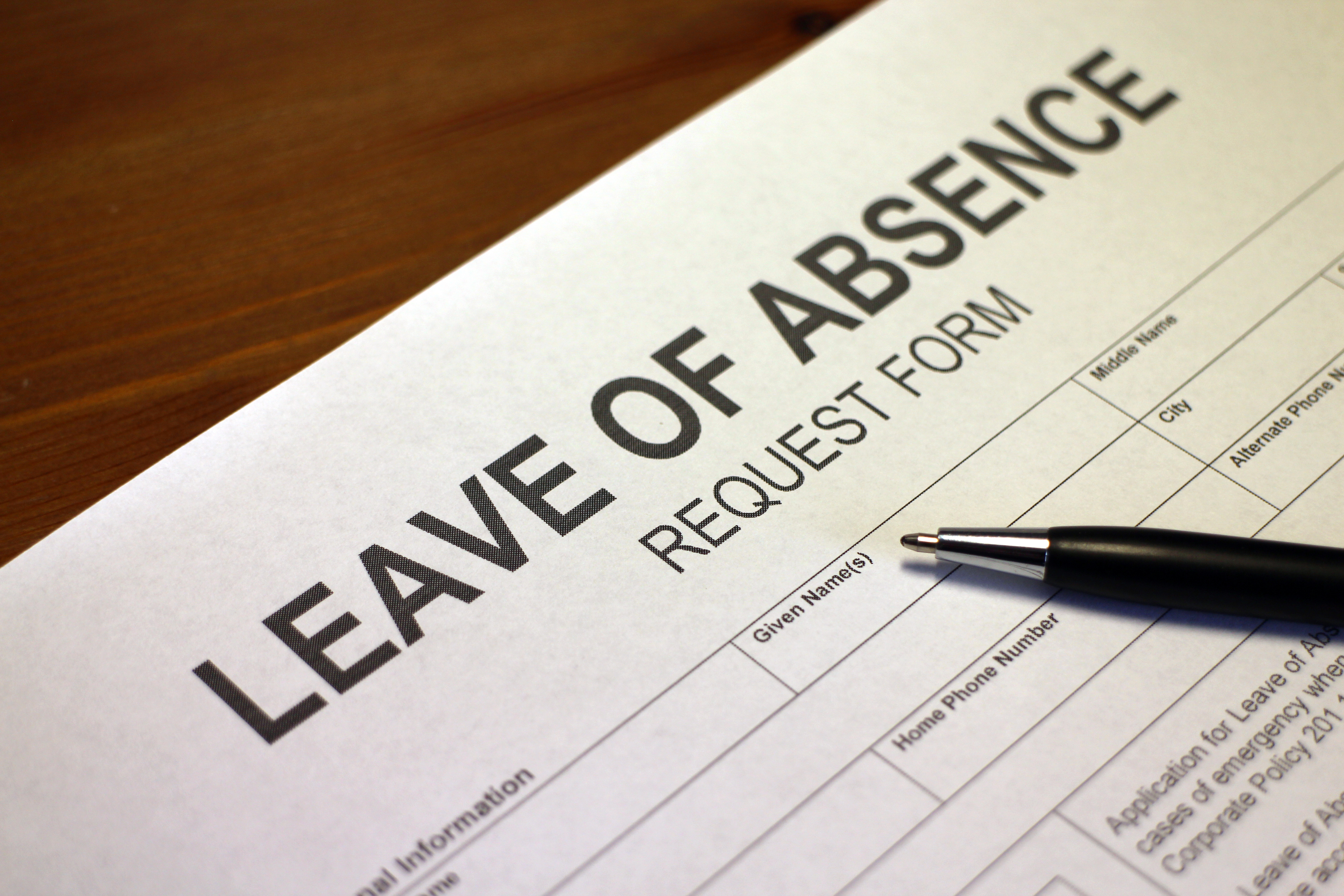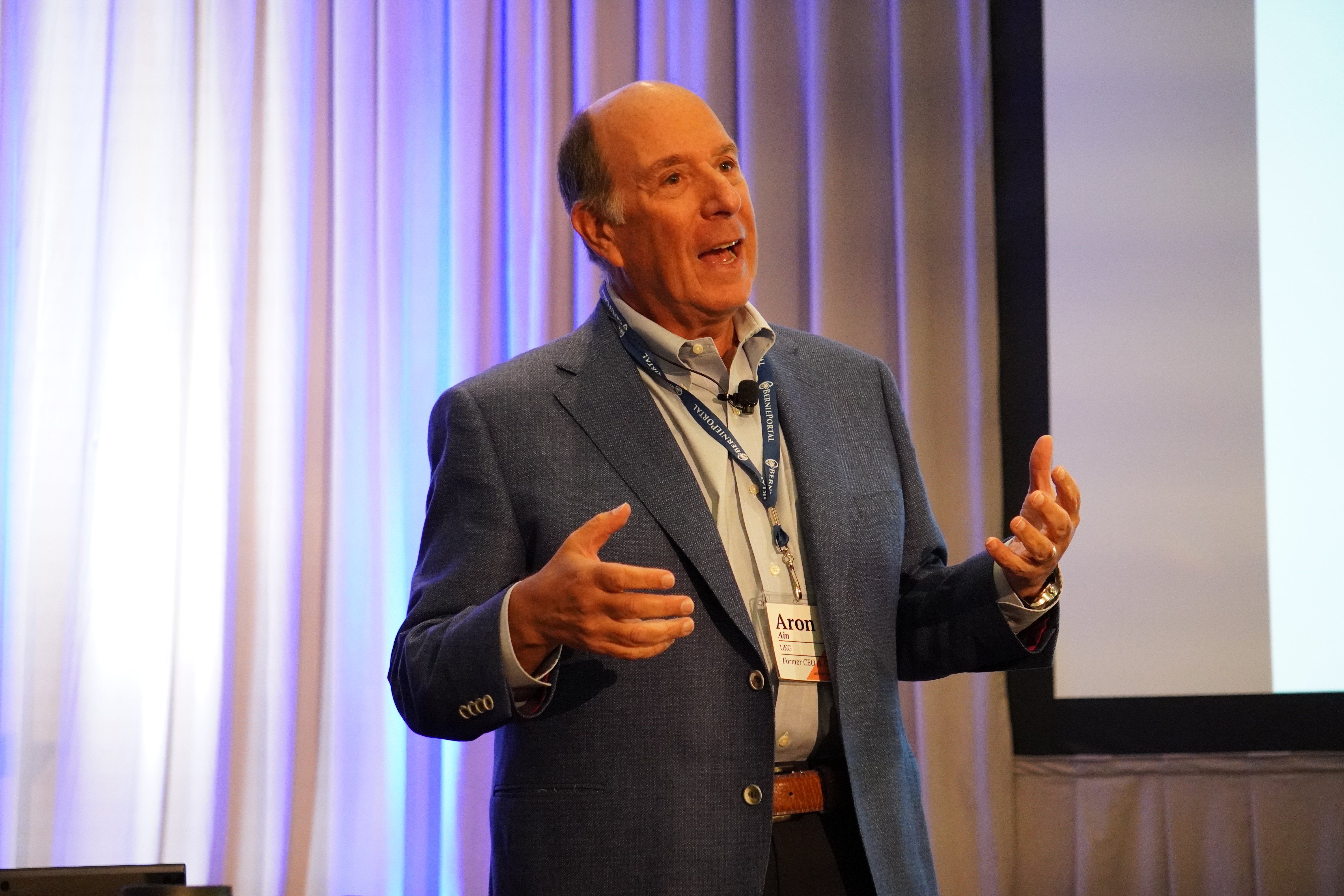Written by
Bretton Chatham
Bretton is an aPHR-certified member of the Marketing Team at Bernard Health. He writes about HR, compliance, and benefits solutions.
Gimme a Break!: Employee Leave Basics

In most small to midsize businesses, HR is where the employer meets the employee on many fronts, including paid and unpaid leave policy. For the sake of compliance and consistency, here’s what you need to know about the most common types of employee leave.
Paid Time Off (PTO) vs. Unpaid Leave
For most companies in most circumstances, federal law does not require paid time off (PTO). However, there are exceptions. For government contract work and federally supported contract work that falls under the McNamara O'Hara Service Contract Act (SCA) or Davis-Bacon and Related Acts (DBRA), it may be mandatory to offer paid time off if that is the prevailing local standard.
Unpaid leave simply refers to any time an employee takes time off without pay. While most employers are not federally required to offer paid time off, there are a few laws requiring unpaid leave—most notably, FMLA and jury duty.
Still, many employers choose to offer PTO as part of their overall benefits package to recruit and retain talent. The most common approaches to PTO include:
- Annual Allotment: In this approach—also called a “lump sum” policy—employees are given up front a set number of PTO days per year, which may or may not rollover to the following year.
- Accrual Bank: In this approach, employees accrue PTO days on a monthly or quarterly basis. Employers typically set a maximum number of days that can be earned before requiring an employee to spend them.
- Unlimited PTO: In this approach, employees may arrange with their manager to take as much paid time off as they need so long as it does not affect their performance.
Most of these strategies work as “umbrella” policies rather than distinguishing between vacation days and sick days.
For more information, check out BernieU: PTO Tutorial: How to Build and Audit a Great PTO Policy.
FMLA Leave
The federal Family and Medical Leave Act (FMLA) requires employers with 50 or more employees to provide up to 12 weeks of unpaid, job-protected leave for:
- the birth, adoption, or fostering of a child
- a serious health condition that renders the employee unable to work
- caring for an immediate family member with a serious health condition
FMLA does not require paid leave, but it does provide for continuing healthcare coverage. These provisions only apply to employees with at least 12-months’ tenure—or 1250 hours—with a covered employer.
For more information, check out FMLA: When Does It Apply & How Should Organizations Handle it?
Administrative Personal Leave
For situations in which FMLA doesn’t apply, many employers choose to have an Administrative Personal Leave policy that looks similar to FMLA. These policies typically cover a shorter period of time, but employers have discretion to design such a policy however they wish. Keep in mind that the definition of “Administrative Personal Leave” varies by organization and can even have a negative connotation, depending on the circumstances.
Bereavement Leave
Bereavement leave refers to paid or unpaid time off that an employee takes after the loss of a loved one—usually a parent, partner, or other “immediate family.” During this time, the employee can attend to family matters, funeral home arrangements, and other end-of-life concerns.
Currently, no federal or state laws—with the exception of Oregon—require employers to offer bereavement leave, paid or not. However, the vast majority of employers do offer some form of paid bereavement leave—as a matter of company culture, even if it’s not a matter of compliance.
For more information, check out How to Write a Bereavement Leave Policy.
Disability Leave
There is some overlap between FMLA and disability leave, so it’s important to clarify that disability leave—according to the Americans with Disabilities Act (ADA)—refers to the right to take a leave of absence or to have reasonable accommodations for employees who are substantially limited in one or more major life activities–physically or mentally. Reasonable accommodation includes a change in workplace policies, facilities, or how work is done. ADA regulations apply to employers with 15 or more employees.
FMLA leave does not require paid time off, but employers may offer disability insurance to supplement the income of an employee on disability leave. Depending on the policy, short-term disability insurance will start paying out after an elimination period—usually seven days or more after an illness or injury. Often long-term disability insurance will start paying out only after reaching the end of short-term disability—usually 90 days or more.
For more information, check out Disability Leave vs. Disability Insurance: What's the Difference? and Short-Term vs. Long-Term Disability.
Election Day
No federal laws require employers to offer paid or unpaid leave for employees to vote. However, most states do have laws regulating time off on Election Day—usually for only a few hours rather than the whole day.
Federal Holidays
According to the federal Office of Personnel Management (OPM), most federal employees are entitled to paid time off on a federal holiday. However, most private employers are not required to offer time off for holidays—including federal holidays—but many choose to observe some of those days and pay employees for the day off to improve employee retention and attract new candidates.
As previously mentioned, private employers should note that federal law may require offering paid time off for federal holidays for government contract work that falls under the McNamara O'Hara Service Contract Act (SCA) or Davis-Bacon and Related Acts (DBRA).
For more information, check out Federal Holidays 2022: Is Time Off Legally Required?
Jury Duty
Just as citizens summoned to jury duty are required to comply, employers are required to offer unpaid leave for those who serve, according to the Fair Labor Standards Act (FLSA). Although federal law does not require paid leave, state laws may differ. Employers should refer to the laws of their state and may need to write a jury duty policy for their organization.
Military Leave
According to the OPM, employers must provide paid leave for certain types of active or inactive National Guard or Military Reserves duty. Additionally, the Uniformed Services Employment and Reemployment Rights Act requires employers to reemploy military personnel returning from active duty.
Parental Leave
“Parental leave” and “FMLA leave” are often used interchangeably, but it’s important to note that FMLA only requires 12 weeks of unpaid leave for certain workers. Currently, nine states and DC require some form of paid family and medical leave. Many employers still choose to offer paid parental leave—also known as maternity or paternity leave—as a recruitment and retention strategy.
For more information, check out How Paid Parental Leave Can Improve Retention.
Religious Holidays
Under Title VII of the Civil Rights Act of 1964, organizations with 15 or more employees must make reasonable accommodations for workers wishing to observe a religious holiday. State laws may apply to employers not covered by Title VII.
However, the Equal Employment Opportunity Commission (EEOC) has clarified that affected organizations may be exempt from these requirements if they can demonstrate that religious accommodations cause undue hardship on the business.
For more information, check out Are Employers Required to Give Time Off for Religious Holidays?
Additional Resources
You can stay informed, educated, and up-to-date with important HR topics using BerniePortal’s comprehensive resources:
- BerniePortal Blog—a one-stop-shop for HR industry news
- HR Glossary—featuring the most common HR terms, acronyms, and compliance
- HR Guides—essential pillars, covering an extensive list of comprehensive HR topics
- BernieU—free online HR courses, approved for SHRM and HRCI recertification credit
- HR Party of One—our popular YouTube series and podcast, covering emerging HR trends and enduring HR topics
Written by
Bretton Chatham
Bretton is an aPHR-certified member of the Marketing Team at Bernard Health. He writes about HR, compliance, and benefits solutions.
Related Posts
We just wrapped up another phenomenal Weekdays with Bernie (WWB) Conference!
Employees are the heart and soul of an organization, and valuing their opinions can have...
HR parties of one already have an abundance of tasks to keep up with. From hiring to...
The talent search is no longer a skirmish or a battle. It’s a WAR! As a strategic HR...







Submit a Comment